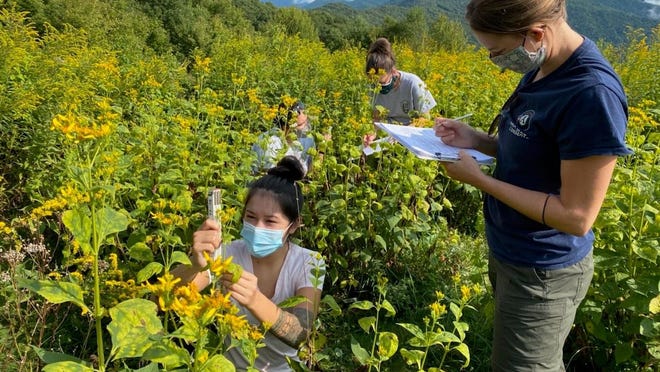
By Jenise Terrell and Kristen Bennett for USA Today
Trust is the backbone of American democracy. But trust in the media, the federal government and our neighbors is hard to come by, and our democracy continues to face growing threats from misinformation and polarization.
A new report from More in Common found that less than 30% of Americans in the past 15 years have confidence in the federal government to do what is right for the country — down from 80% of Americans in the 1960s. Trust in the media and our neighbors fared no better.
This decline in trust among Americans came to a head during the 2020 election and the insurrection at the Capitol on Jan. 6, a violent act rooted in misinformation and distrust.
A poll in January found that 67% of Americans believe President-elect Joe Biden should prioritize programs or proposals that have the ability to heal divides in the country. We agree. We must begin to rebuild that trust and understanding, a sense of responsibility for our neighbors, and a future that includes all Americans — and it is going to take more than rhetoric about unity to be successful.
As nonprofit leaders committed to the future of American democracy, we believe we must invest in a significant expansion of national service to help bridge these deep divides and bind Americans of all backgrounds together in common purpose.
National service has a long history of fueling civic renewal in the nation. By bringing together young people in common purpose, national service demonstrates that regardless of one’s differences with others, we can solve problems and work together toward shared goals.
National service has the power to engage an entire generation of Americans, helping secure a more empathetic, inclusive and engaged future for our democracy.
Our organizations, Public Allies and Service Year Alliance, are part of the coalition backing the Serve America Together campaign to make national service part of growing up in America.
The campaign’s polling this year found that 63% of Americans agree that national service programs, like AmeriCorps and Peace Corps, are a good way to help heal divides in the country.
This month, as part of the National Week of Conversation, we participated in “Bridging Divides Through National Service.” The virtual event hosted by Service Year Alliance focused on the need to strengthen our country’s civic fabric through national service and offered participants an opportunity to build connection during a time of waning trust and deep division.
Our experience operating a national service program and evaluating dozens of national service programs across the country and their practices to build more understanding citizens lends itself to these same conclusions.
At Public Allies, we engage emerging leaders through an AmeriCorps program that places participants in nonprofit organizations focused on issues like youth development, education, workforce development, environmental issues, arts programming and community health.
Our program’s guiding philosophy is that leaders build solutions with members of the community — not for them. We value lived experience and elevate the voices of those on the front lines of our greatest challenges.
With this in mind, Public Allies has built a powerful network of more than 8,000 leaders who bridge races, ethnicities, socioeconomic levels and cultures.
In recent months, Service Year Alliance interviewed national service programs like Public Allies to better understand how these programs are committed to building “bridgers” — young people who form positive relationships across lines of difference and fuel civic renewal in America.
A result of those interviews, our Service Years and Bridging report found that 98% of national service programs agreed that their corps members develop empathy during service and 91% agreed that their corps members learn about a culture different from their own during a service year.
Additionally, service year alumni are more likely to vote, are more comfortable interacting with people from different backgrounds, and feel more connected to their communities.
We are at a juncture in American democracy. And the next generation of Americans are eager to be part of the solution to the many complex challenges facing our country. They’re taking to the streets to protest racial injustice, using their voices to demand action on climate change, and raising their hands to help their fellow citizens and neighbors through the pandemic. They believe in America and are already invested in fighting for a better future for our country and the world.
By expanding national service so that every young person in America has the opportunity to serve, we have a chance to bring people from all walks of life together with shared goals and responsibility and start to bridge the divides that exist between fellow Americans.
Jenise Terrell is vice president of Programs at Public Allies. Kristen Bennett is chief strategy officer at Service Year Alliance.
Photo courtesy of Great Smoky Mountains National Park.